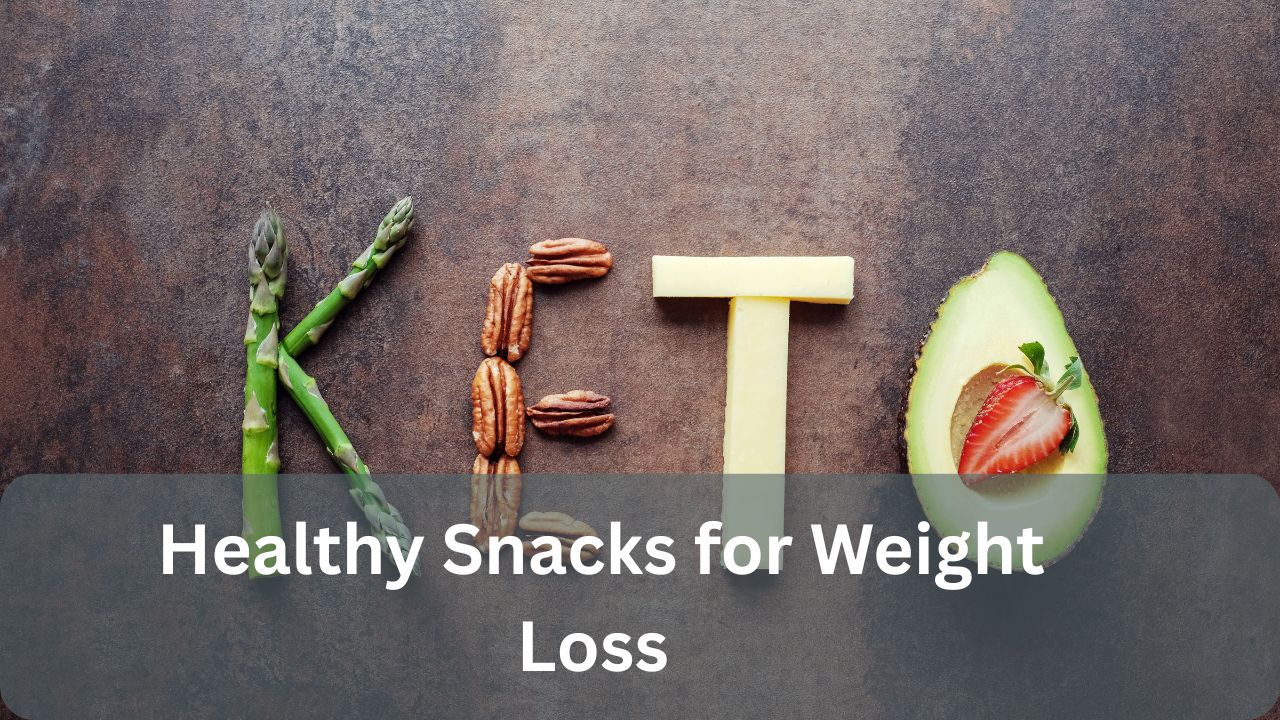The ketogenic (keto) diet has gained immense popularity in recent years due to its potential health benefits, particularly for weight loss, improved energy levels, and mental clarity. The keto diet focuses on high-fat, moderate-protein, and very low-carbohydrate foods, leading the body to enter a metabolic state called ketosis, where it burns fat for fuel instead of carbohydrates. But what are the best keto-friendly foods to include in your diet? In this post, we’ll explore a variety of keto diet healthy foods, tips for meal planning, and the benefits of adopting this lifestyle.
Also Read-10 Healthy Snacks for Weight Loss 2025
What is the Keto Diet?
The keto diet is a low-carb, high-fat, moderate-protein diet that shifts the body’s metabolism from burning carbs to burning fats. By reducing carbohydrate intake and replacing it with healthy fats, the body enters a state of ketosis, where it starts breaking down fats into ketones to use for energy.
Top Healthy Foods for the Keto Diet
-
Avocados Avocados are a top choice for keto dieters due to their high healthy fat content and low carb count. They are rich in heart-healthy monounsaturated fats and offer a significant amount of fiber, making them perfect for maintaining ketosis.
-
Leafy Greens Vegetables like spinach, kale, and arugula are low in carbs but high in essential vitamins and minerals. They are an excellent source of fiber and antioxidants, contributing to your overall health.
-
Eggs Eggs are a staple on the keto diet due to their versatility, high protein content, and low carb count. They are an excellent source of healthy fats and can be incorporated into various meals, from scrambled eggs to omelets.
-
Nuts and Seeds Almonds, walnuts, chia seeds, and flaxseeds are great sources of healthy fats, fiber, and protein. They are also low in carbohydrates and help keep you full for longer periods.
-
Cheese Cheese is an excellent option for keto dieters, as it is high in fat and low in carbs. Varieties such as cheddar, mozzarella, and goat cheese are particularly keto-friendly.
-
Meats and Fatty Fish Fatty cuts of meat like bacon, beef, and pork, along with fatty fish such as salmon, mackerel, and sardines, are essential components of the keto diet due to their high fat content and minimal carbs.
-
Olive Oil Olive oil is rich in monounsaturated fats and has numerous health benefits, including reducing inflammation. It’s a great fat source for cooking or drizzling over salads.
-
Coconut Oil Like olive oil, coconut oil is rich in healthy fats and can be used for cooking or added to beverages like coffee. It’s a great fat source for those following a keto diet.
-
Berries (In Moderation) While most fruits are too high in carbs for the keto diet, berries like strawberries, raspberries, and blackberries can be enjoyed in moderation due to their lower carb count and high antioxidant content.
-
Full-Fat Dairy Full-fat dairy products, such as butter, heavy cream, and Greek yogurt, are low in carbs and provide essential fats. These are a great way to increase your fat intake without spiking your carb levels.
Benefits of Keto Diet Healthy Foods
-
Weight Loss
One of the primary benefits of the keto diet is weight loss. When the body enters ketosis, it starts burning fat for fuel, which can help shed excess weight more effectively than traditional low-fat diets. -
Improved Mental Clarity
Many people report increased mental clarity and focus when on the keto diet. This is due to the brain’s ability to use ketones as a more efficient source of energy than glucose. -
Stable Energy Levels
Unlike carb-based energy spikes and crashes, the keto diet provides a more stable energy source, leading to improved endurance and consistent performance throughout the day. -
Better Blood Sugar Control
The keto diet can improve insulin sensitivity and help regulate blood sugar levels, making it beneficial for those with type 2 diabetes or pre-diabetes.
Meal Planning on the Keto Diet
Planning your keto meals in advance ensures that you stay on track with your carb limits while maximizing the intake of healthy fats and proteins. Include plenty of low-carb vegetables, healthy fats, and keto-friendly protein sources like chicken, beef, or fish. Avoid processed foods and sugar-laden snacks, as these can quickly knock you out of ketosis.
Keto Diet and Common Mistakes to Avoid
-
Not Getting Enough Fiber While on the keto diet, it’s important to include high-fiber foods like leafy greens, seeds, and nuts. This helps prevent constipation and maintains digestive health.
-
Consuming Too Much Protein Too much protein can hinder ketosis. While protein is essential, it’s important to maintain a balance between fats and proteins to ensure your body stays in ketosis.
-
Neglecting Electrolyte Balance When starting the keto diet, you may experience the “keto flu,” which can include headaches, fatigue, and muscle cramps. This is often due to an imbalance in electrolytes. Be sure to consume adequate sodium, potassium, and magnesium.
Conclusion
The keto diet offers a variety of health benefits, especially when you focus on incorporating healthy, nutrient-dense foods. By following a balanced approach with keto diet healthy foods, you can achieve your goals of weight loss, mental clarity, and improved overall health. Whether you are new to the keto lifestyle or have been following it for some time, focusing on whole, nutritious foods will ensure you stay on track and maintain a healthy, sustainable diet.
FAQ Section
What are the best keto-friendly snacks?
Keto-friendly snacks include nuts, cheese, avocados, and hard-boiled eggs. These options provide healthy fats and protein while keeping your carb intake low.
Can I drink alcohol on the keto diet?
Alcohol can be consumed in moderation, but it’s essential to choose drinks that are low in carbs, such as dry wine, whiskey, or vodka.
How many carbs can I eat on the keto diet?
The typical keto diet restricts carbohydrate intake to 20-50 grams per day, depending on individual goals and body composition.
Can I do keto if I’m vegetarian or vegan?
Yes, it’s possible to follow a vegetarian or vegan keto diet by focusing on plant-based fats such as avocados, nuts, seeds, coconut oil, and non-starchy vegetables.
What happens if I go off the keto diet?
If you go off the keto diet, your body will exit ketosis and revert to burning glucose as its primary fuel source. You may experience a temporary weight gain as the body starts storing carbs again.



